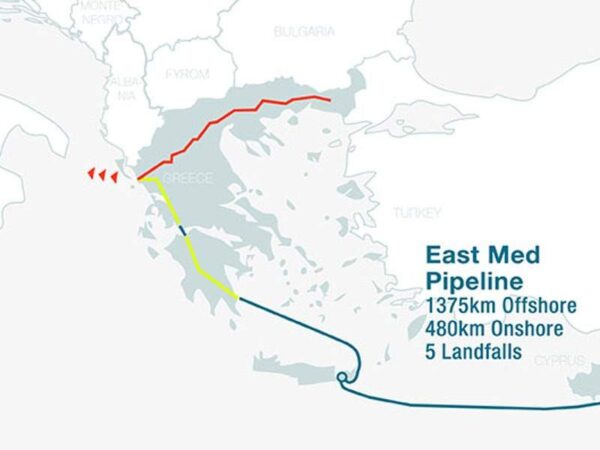Turkey and its neighbors, Greece and Cyprus specifically, are engaged in ongoing disputes surrounding maritime borders, the delimitation of exclusive economic zones (EEZs), and the rights to energy resources found in these EEZs. These issues have caused fraught and sometimes violent relations, including military hostilities between Turkey and Greece in 1987 and 1996. In 2020, groups linked to the Turkish government conducted cyberattacks on the Greek and Cypriot governments and European Union institutions. Turkey launched these attacks in retaliation to energy infrastructure deals between Turkey’s neighbors, such as the Eastern Mediterranean Pipeline, and as a response to European court rulings against its energy interests. While Turkey is generally considered a US ally, the relationship has become tense in recent years when Turkey purchased the Russian S-400 missile system weapons in defiance of American wishes and when the Turkish military launched air and ground assaults against Kurdish allies of the US in Syria. The US also has an interest in protecting Greece and Cyprus as EU allies. Turkey’s willingness to attack these allies is significant for the United States, showcasing potential points of contention in the relationship.
Turkey’s geopolitical ambitions are strongly linked to its desire to control the energy reserves in the Aegean Sea, particularly gas fields, as Turkey has no internationally recognized energy reserves of its own. However, Turkey’s claims to these resources are contested by Greece’s internationally recognized territorial claims and waters that fall within its EEZ. Tensions came to a head in January 2020 when Turkish government-linked hackers breached government and organization databases in Cyprus and Greece, along with Iraq and several other governments in the Middle East. The targets included various databases of ministries, embassies, and security services. While the impact and implications of the attack was unclear, the breach of Cypriot and Greek government data occurred after Israel, Cyprus, and Greece signed the Eastern Mediterranean Pipeline deal, whose planned route will exclude Turkey. The pipeline, which will carry gas from the Eastern Mediterranean Basin to Europe, has been a major source of tension between Turkey and EU signatories.

Control of energy resources in the Eastern Mediterranean Basin is vital to the Turkish government because the country has few energy resources within its borders. In 2018, Turkey imported 72.4 percent of its energy needs. Ankara has long sought to become a regional energy hub, and its exclusion from the pipeline deal diminished these aspirations while elevating rancor between Turkey and the signatories. In response, Turkey launched cyberattacks targeting Greece and Cyprus.
Beyond its immediate neighbors, Turkish hackers have also conducted cyberattacks on EU institutions such as the European Court of Human Rights (ECHR). On December 22, 2020, the ECHR issued a ruling condemning Turkey’s imprisonment of a former Kurdish political leader. President Tayyip Erdogan rejected the ruling and shortly thereafter, a group of hackers linked to the Turkish government launched a major cyberattack against the court’s databases and seized documents. Although likely triggered by the court’s ruling, the attack also came amid heightened EU-Turkish tensions throughout fall 2020 over maritime border disputes. The attack likely had little effect on the court’s functions, nor were the seized documents highly sensitive. It did showcase, however, Turkey’s willingness to retaliate against decisions or positions that it views as unfavorable to its domestic interests and policies.
The U.S. State Department considers Turkey a key NATO ally and regional security partner, and the two countries have healthy bilateral economic relations, but Turkey’s unilateral military decisions and actions in Syria and other regional conflicts have run counter to US objectives and stirred up enmity in the past several years. As cyberwarfare becomes a more common tool to pursue geopolitical interests, the United States may increasingly find itself at loggerheads with Turkey over its retaliatory tactics against EU countries and organizations that curb Turkey’s goal of regional dominance. Turkey seeks to become a regional economic powerhouse, but its willingness to resort to threatening these countries with security breaches adds another point of contention to an already uneasy relationship with the US.

